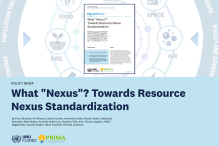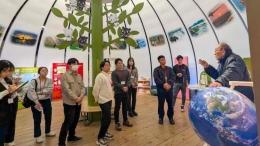This project focuses on the state and statebuilding in the Global South, with particular attention to the interaction between international and local actors, institutions, and context. It includes two components. The first focuses on statebuilding and the role of external intervention and development assistance therein. It builds upon previous UNU-WIDER work on institution-building in fragile contexts.
International assistance has an important role to play in fragile contexts in order to achieve the aim of leaving no one behind. At the same time, a large literature underscores the particular challenges of aid effectiveness in weak institutional contexts. Understanding how states become more ‘resilient’, and the role of international assistance therein, is a core and continuing challenge for both scholars and practitioners. More broadly, the project considers how international actors and states in low-income countries interact across diverse contexts, and how and why state authority, capacity, and legitimacy may change through such interaction. A second component of this project focuses on Covid-19 response in Global South countries and the relationship between national policies and implementation, state capability, and international factors. Countries around the world have adopted diverse policy measures in response to Covid-19. This component asks, given standard international public health guidance, how and why such policy measures and their implementation have varied across countries? Relatedly, why have some countries been more effective than others in responding to the global pandemic?
Upon the launch of the UNU-WIDER Work Programme 2019-2023 the research programme was divided into 6 flagship projects. Two years into the work programme these flagships have matured into several standalone project, of which “The state and statebuilding in the Global South – international and local interactions” originally under “Capable states - building the foundations for achieving SDGs” is one. As of 1 January 2021, this project will be included in Pelikan as its own entry.
- Focal Point
- Rachel M. Gisselquist



